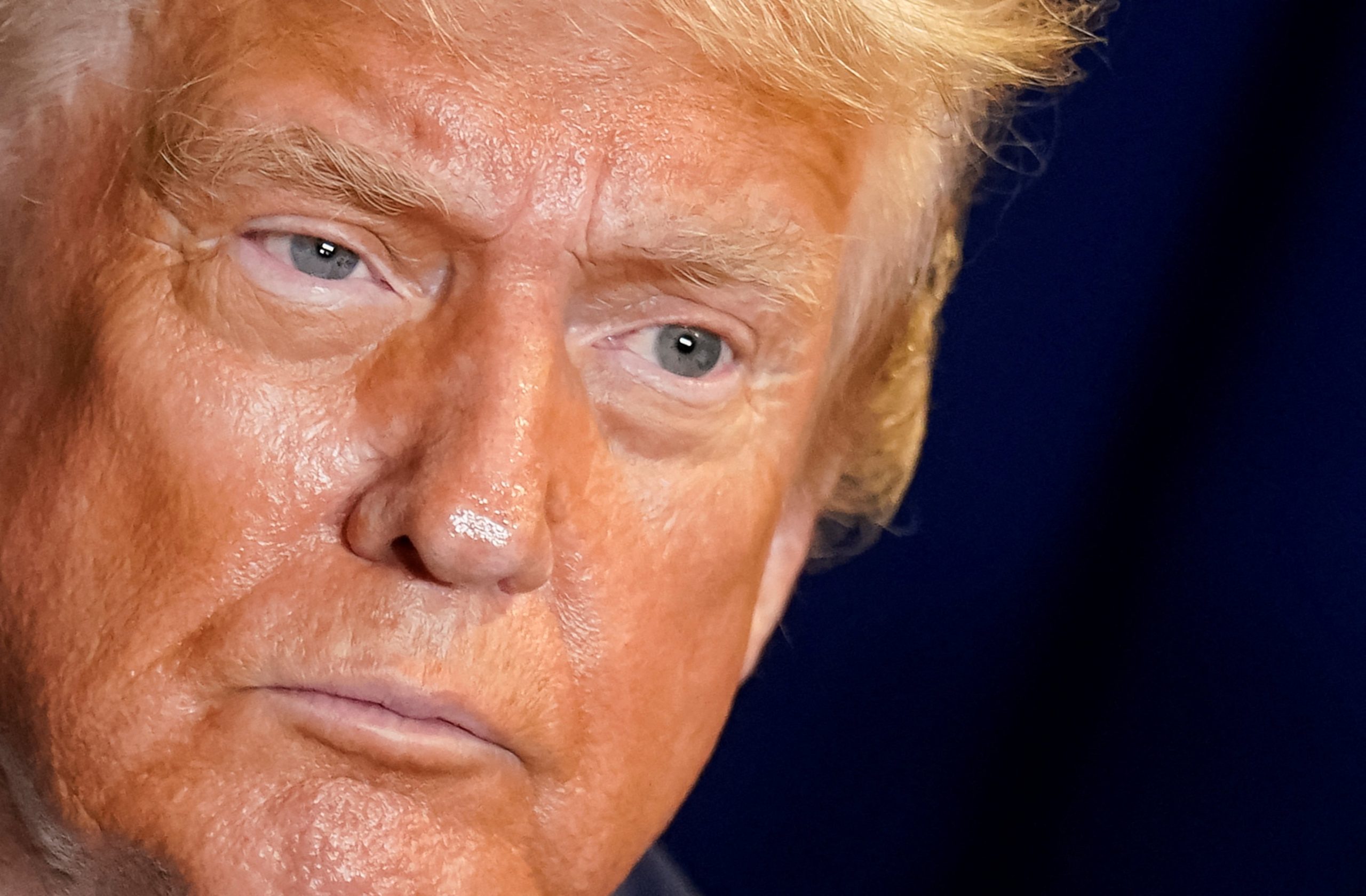Americas
Over 65,000 Kenyans Face Job Losses as Critical US Trade Deal Expires
President Trump has repeatedly criticized free trade deals as lacking “reciprocal terms” and pushed for bilateral arrangements instead.

NAIROBI — More than 65,000 Kenyan workers are on the brink of unemployment as the African Growth and Opportunity Act expires at midnight Tuesday, threatening to dismantle two decades of trade relations that have sustained Kenya’s garment manufacturing sector.
The expiring trade pact, which has allowed duty-free access to American markets since 2000, is set to trigger immediate tariff increases that industry leaders say will devastate Kenya’s export processing zones.
Without congressional action, tariffs on Kenyan exports like apparel, textiles, and nuts will surge from zero to over 30% starting October 1.
The crisis has already begun. United Aryan, a Kenyan factory that produces Wrangler and Levi’s jeans for US retailers, laid off 1,000 workers this week — 10% of its workforce — as the deadline approached with no resolution in sight.
“The uncertainty is not only with buyers, but with lenders, the banks, and all that. Everybody’s very nervous,” said Pankaj Bedi, who chairs the apparel manufacturers and exporters sector at the Kenya Association of Manufacturers, speaking at meetings in New York last week between business representatives and US officials.
The stakes extend far beyond individual factories. Kenya’s Agoa exports jumped 41.9% to 60.5 billion shillings since 2020, with employment in the sector increasing by more than 21,000 jobs over the same period.
Last year alone, 40 companies operating under Agoa employed 66,804 people and injected 38.27 billion shillings in capital investments.
Kenya’s trade-weighted average US tariff would nearly triple if Agoa expires, jumping from 10% to 28%, according to the United Nations Conference on Trade and Development.
The organization warned Monday that “this sudden jump in tariffs could disrupt long-standing trade relations and severely disadvantage African exporters, particularly in highly protected sectors like textiles and apparel.”
Despite the looming deadline, Kenya’s government struck an optimistic tone Monday.
Cabinet Secretary Lee Kinyanjui dismissed fears over job losses as “unwarranted,” citing President William Ruto’s lobbying efforts in Washington.
“Keep cool, professional driver is in control,” Kinyanjui told reporters, adding that the response from Washington has been “reassuring.”
A White House official told the Financial Times on Friday that the administration supports a one-year extension of the program.
But any extension requires congressional approval, and the Republican-controlled Congress has shown little urgency to act.
The delay represents a stark contrast to 2015, when President Barack Obama signed an Agoa extension three months before the deadline, granting another decade of duty-free access.
This time, a bipartisan effort to extend Agoa by 16 years to 2041 failed to advance through Congress.
The Trump administration’s protectionist stance has complicated matters.
President Trump has repeatedly criticized free trade deals as lacking “reciprocal terms” and pushed for bilateral arrangements instead.
Kenyan exporters have already been hit with a baseline 10% US tariff as a result of this policy shift.
Industry representatives who met with American retailers in New York last week say US stakeholders support Agoa’s continuation but are waiting for White House leadership.
“Everybody we met from the US side is in agreement that, yes, Agoa should continue. But still there’s no champion,” Bedi said. “They’re all waiting for a sign from the White House, basically.”
The Kenya Private Sector Alliance has called for a one-to-two-year transition period to avoid supply chain disruptions that would affect not just Kenyan workers but also US logistics, retail, and distribution sectors.
The group estimates that Agoa delivers $200 million to $250 million in annual consumer savings for Americans by lowering the cost of everyday goods like jeans and uniforms.
For Kenya’s manufacturing hubs in Athi River, Thika, and other export processing zones, the expiry threatens to erase competitive advantages built over 25 years.
Manufacturers say tariffs above 30% would eliminate their ability to compete with countries like Bangladesh and Vietnam.
“We are asking the US to seriously consider renewing and extending Agoa for at least five years because it is a platform that connects Africa and the US in a very fundamental way,” President Ruto said in New York last week. “It can go a long way in addressing trade deficits and challenges that exist at the moment.”
Congress has previously extended expired trade legislation retroactively and refunded importers, offering a glimmer of hope that a last-minute deal could still materialize.
But with hours remaining before the deadline, 65,000 Kenyan workers are left waiting to learn whether their livelihoods will survive the night.
Kenya Insights allows guest blogging, if you want to be published on Kenya’s most authoritative and accurate blog, have an expose, news TIPS, story angles, human interest stories, drop us an email on [email protected] or via Telegram
-

 Grapevine2 weeks ago
Grapevine2 weeks agoAlleged Male Lover Claims His Life Is in Danger, Leaks Screenshots and Private Videos Linking SportPesa CEO Ronald Karauri
-

 Grapevine1 week ago
Grapevine1 week agoRussian Man’s Secret Sex Recordings Ignite Fury as Questions Mount Over Consent and Easy Pick-Ups in Nairobi
-

 Investigations6 days ago
Investigations6 days agoMulti-Million Dollar Fraud: Three Kenyans Face US Extradition in Massive Cybercrime Conspiracy
-

 News4 days ago
News4 days agoTHE FIRM IN THE DOCK: How Kaplan and Stratton Became the Most Scrutinised Law Firm in Kenya
-

 Economy4 days ago
Economy4 days agoIran Demands Arrest, Prosecution Of Kenya’s Cup of Joe Director Director Over Sh2.6 Billion Tea Fraud
-

 Business5 days ago
Business5 days agoA Farm in Kenya’s Rift Valley Ignites a National Reckoning With Israeli Investment
-

 Business2 weeks ago
Business2 weeks agoM-Gas Pursues Carbon Credit Billions as Koko Networks Wreckage Exposes Market’s Dark Underbelly
-

 Africa1 week ago
Africa1 week agoFBI Investigates Congresswoman Ilhan Omar’s Husband’s Sh3.8 Billion Businesses in Kenya, Somalia and Dubai

















